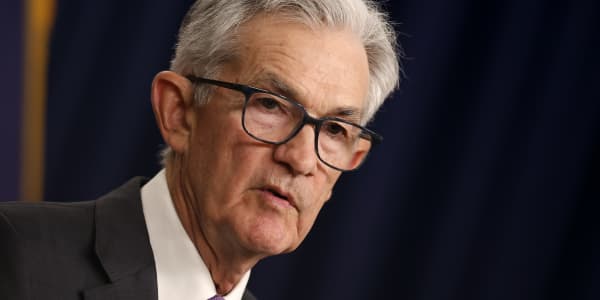This report is from today's CNBC Daily Open, our new, international markets newsletter. CNBC Daily Open brings investors up to speed on everything they need to know, no matter where they are. Like what you see? You can subscribe here.
What you need to know today
Cooling inflation
The U.S. personal consumption expenditures price index rose just 3% year-over-year in June, and 0.2% from a month ago. Stripping out food and energy prices, core PCE was 4.1%, the lowest annual increase since September 2021, and rose 0.2% from May. The Federal Reserve follows the PCE closely because it tracks how people spend their money, instead of just how much goods cost.
Winning week for U.S. stocks
U.S. stocks rose Friday, giving all major indexes a winning week on the back of positive economic data. The pan-European Stoxx 600 index fell 0.2%. Meanwhile, Germany's gross domestic product stagnated in the second quarter, according to flash estimates, but France's GDP grew by 0.5%, easily beating the expected 0.1%.
Google's feeling lucky
Alphabet shares jumped 10% last week to hit $132.58, its highest in more than a year, as investors grew bullish on the stock after Alphabet reported better-than-expected earnings for the second quarter. Alphabet's report showed that the company could still keep Google as the leader in the search business despite challenges posed by generative artificial intelligence chatbots.
Looser YCC, tighter monetary policy?
The Bank of Japan announced Friday it will offer to purchase 10-year Japanese government bonds at 1%. That is, the bank's effectively loosening its yield curve control by expanding its tolerance range for 10-year JGB yields by a further 50 basis points. Analysts think the bank might be preparing to tighten monetary policy — and remove yield curve control eventually.
[PRO] Jobs, Apple and Amazon
What's next after the Dow Jones Industrial Average's historic 13-day run of gains? That depends on the July jobs report, out Friday, and earnings reports from Big Tech companies Apple and Amazon. CNBC Pro's Sarah Min breaks down what analysts are expecting from those data points releasing this week.
The bottom line
More signs are emerging that the Federal Reserve's latest hike might be the last in a while.
The headline PCE figure for June came in at 3%, the lowest annual increase since March 2021. Notably, that's just one percentage point over the Fed's target of 2% inflation. In fact, goods and food prices decreased 0.1% for the month, contributing to a plunge of 0.8 percentage points in the headline number from May. This suggests that we might not be too far off from hitting the Fed's goal.
Aside from the inflation data, the Commerce Department reported personal income rose 0.3%, slightly below expectations. That's corroborated by the Labor Department, which said the employment cost index rose 1% in the second quarter, lower than the 1.1% estimate.
Markets cheered the news. The S&P 500 gained nearly 1%, the Dow Jones Industrial Average rose 0.5% and the Nasdaq Composite jumped 1.9%, buoyed by a rally in technology stocks. All three indexes ended the week in the green.
But having a breather from interest rate hikes is just half the battle won for Wall Street. A pause doesn't mean a cut — for the foreseeable future, America will still have to live with the highest interest rates in more than 22 years. And "Shark Tank" investor Kevin O'Leary told CNBC he thinks more "things are going to break" under such pressure.
"I am just predicting — and I am very cautious on this — it will break down in the regional banks, which supports 60% of the economy," O'Leary said.
Still, things are looking fine for the sector for now. The SPDR S&P Regional Banking ETF has increased more than 19% since the start of July. That puts it on track for its best month since October 2016.
O'Leary acknowledges that the economy is still sailing ahead. But, he added, "we've started to see the cracks." Perhaps that's another sign the Fed should indeed loosen its grip on monetary policy.





